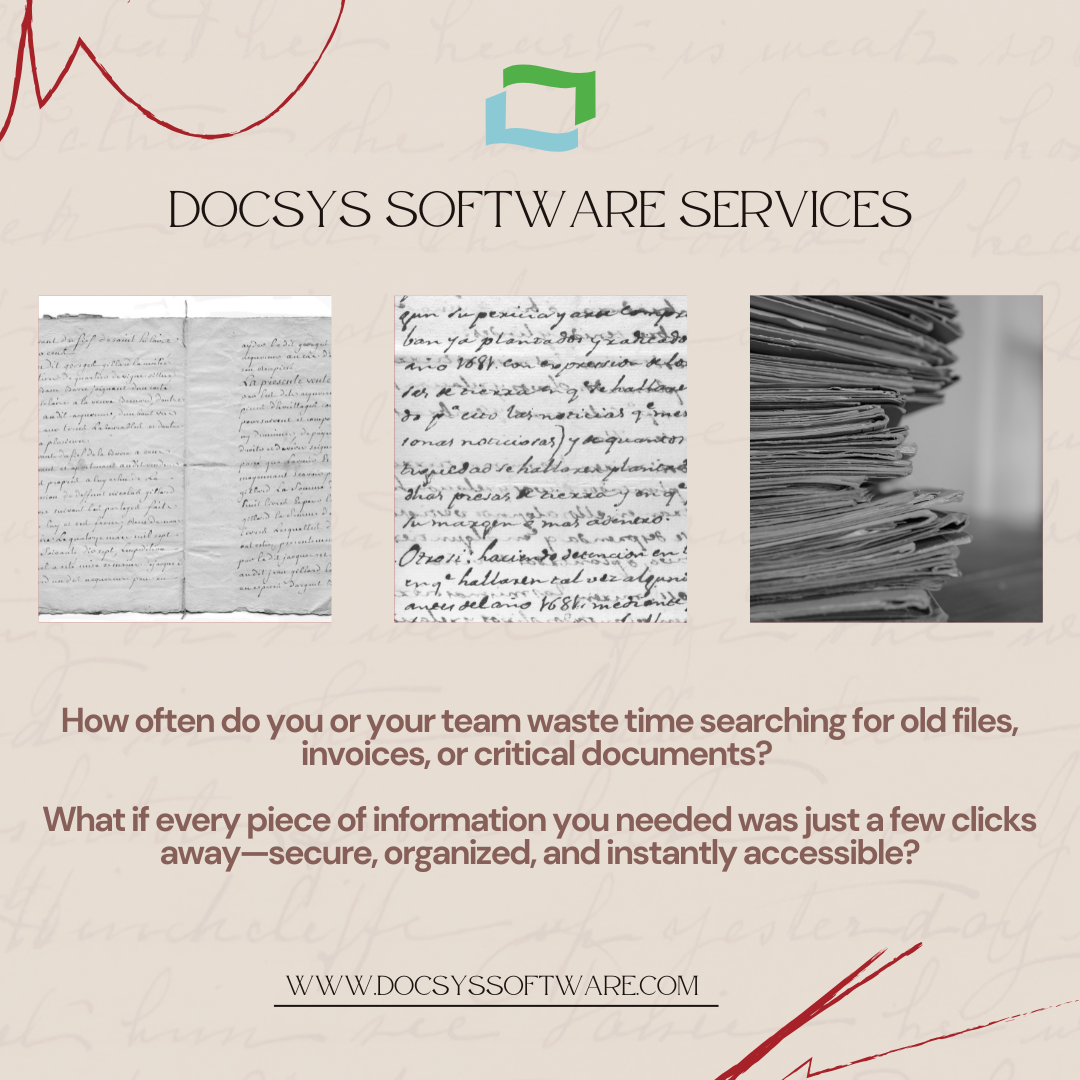Let me ask you something: How much time does your team spend searching for old files, contracts, or critical business documents? Now, imagine a world where every piece of information you need is just a few clicks away—secure, organized, and instantly accessible.
That’s the power of digital archiving. In today’s fast-paced business landscape, information is more than just records—it’s strategic capital. Yet, many businesses still struggle with outdated storage systems, misplaced documents, and the inefficiencies of paper-based archives.
At Docsys Software Services, we believe that digital archiving isn’t just about storing old files—it’s about transforming how businesses manage and use information. Let’s dive into the real benefits of digital archiving and why it’s a game-changer for organizations of all sizes.
Why Digital Archiving Matters
Think of digital archiving as your company’s memory bank. Every email, contract, invoice, or project file contains valuable insights, historical data, and compliance records that can shape your future decisions. Without a structured archiving system, businesses risk losing vital information, wasting time, and even facing legal challenges.
With digital archiving, you’re not just storing data—you’re preserving knowledge, improving efficiency, and ensuring long-term accessibility.
The Key Benefits of Digital Archiving
1. Instant Access & Improved Efficiency ⏳
Ever spent hours looking for an important document, only to find it buried in an email thread or lost in a filing cabinet? Digital archiving ensures that every file is searchable, indexed, and retrievable within seconds.
🔹 No more lost documents – Everything is stored in a structured, digital format.
🔹 Faster decision-making – When critical information is easy to find, teams can work more efficiently.
🔹 Seamless collaboration – Employees across departments (or locations) can access files without delays.
2. Enhanced Security & Compliance 🔒
Data security is no longer optional—it’s a necessity. With increasing cyber threats and regulatory requirements, businesses must ensure that sensitive information is protected and audit-ready.
✅ Access control – Restrict sensitive files to authorized personnel.
✅ Automated backups – Prevent data loss due to hardware failures or cyberattacks.
✅ Regulatory compliance – Meet industry standards like GDPR, HIPAA, and ISO certifications with a structured archiving system.
By implementing digital archiving, businesses not only reduce risk but also build trust with clients and regulatory bodies.
3. Cost Savings & Space Optimization 💰
Traditional storage methods—whether physical filing cabinets or outdated server rooms—come with hidden costs. Paper archives take up valuable office space, and maintaining in-house servers can be expensive.
💡 Digital archiving eliminates these inefficiencies, allowing businesses to:
✔️ Reduce printing and storage costs.
✔️ Lower maintenance expenses on outdated IT infrastructure.
✔️ Free up office space for more productive use.
4. Disaster Recovery & Business Continuity 🌍
Imagine a fire, flood, or cyberattack wiping out years of records. Without a digital backup, recovering from such a loss could be nearly impossible. Digital archiving ensures that your critical business data is protected, redundant, and recoverable.
📌 Cloud-based solutions provide remote backups and restore options.
📌 Version control helps track changes and retrieve previous document versions.
📌 Resilience against threats like ransomware attacks, which can lock businesses out of their own files.
5. Knowledge Preservation & Competitive Advantage 🚀
Your business is built on knowledge—customer insights, market trends, operational best practices. Digital archiving ensures that your company’s institutional knowledge doesn’t disappear when employees leave or systems change.
🔸 Historical data for strategy development – Learn from past trends and decisions.
🔸 Faster onboarding for new employees – Access to archived materials helps new hires get up to speed quickly.
🔸 Competitive advantage – Businesses that leverage past data can make more informed decisions, outpacing competitors who rely on guesswork.
Implementing Digital Archiving: Where to Start?
Digital archiving doesn’t have to be overwhelming. Here’s how businesses can get started:
📌 Assess Your Current System – Identify what’s working and what’s causing inefficiencies.
📌 Choose the Right Tools – Invest in archiving software that aligns with your business needs.
📌 Set Access & Security Protocols – Define who can view, edit, or delete documents.
📌 Migrate & Organize Data – Digitize existing records and structure them for easy retrieval.
📌 Train Your Team – Ensure employees understand how to use the new system effectively.
At Docsys Software Services, we specialize in custom digital archiving solutions that help businesses streamline operations, improve security, and future-proof their data.
The Bottom Line: Future-Proof Your Business
Information is one of your most valuable assets, but only if it’s accessible, secure, and actionable. Digital archiving is not just about organizing files—it’s about creating a smarter, more agile business that can adapt to future challenges with confidence.
So, the real question is: Is your business treating its data as a liability or an opportunity?
If you’re ready to take control of your information and leverage it for long-term success, Docsys Software Services is here to help.
Let’s Build a Smarter Future, One File at a Time
The businesses that thrive in the digital age aren’t the ones that simply collect data; they’re the ones that know how to use it effectively.
📂 Are you ready to transform your business with digital archiving? Let’s talk.









